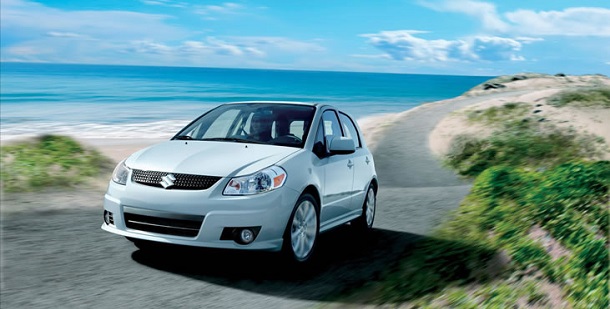
Finding yourself a new car is exciting, and often when you come across that perfect vehicle, you want to get your hands on it as soon as possible. The biggest challenge most car buyers come across is how to fund their new wheels, and if you don’t have the cash upfront a car loan or car finance is usually the next option.
Perhaps you’ve found a car that is more than you were planning on spending and your savings just don’t cover it. Alternatively, you may want to spread the cost of your new car over a longer period of time. Whatever the situation, it is essential to understand all aspects of car finance before making any final decisions.
What is a car loan?
A car loan is a personal loan that is used to purchase a vehicle. Car loan providers will lend the funds needed to buy a car. In return, the borrower agrees to pay the full amount back plus interest over a predetermined period of time.
As a car loan is a type of personal loan, they can be either secured or unsecured depending on the borrower’s circumstances and lender’s criteria. The majority of car loans usually operate as a secured loan, using the vehicle purchased as collateral against the funds. If the borrower doesn’t make the repayments on time, the car can be repossessed, and its sale repays the loan.
If you would prefer an unsecured loan for purchasing a vehicle, you will need a very high credit score and will most likely have to pay a higher interest rate.
Lenders will often offer a secured car loan to borrowers even if they have a poor credit score; this is possible because the vehicle can be used to fund the loan if payments aren’t being made.
A secured car loan can be an excellent option for those with bad credit to restore their credit score by making all the monthly repayments in full and on time. On the other hand, if the borrower fails to make the payments, it will negatively impact their credit score and affect their ability to get finance in future.
Before heading out to go car shopping, get pre-approved for a car loan, so you know what your limit is. The limit will be dependent on your financial situation and will let you know what kind of car you can afford before you head to the dealers.
What is car finance?
If you are buying a car from a dealership, car broker or car supermarket, the chances are they will offer you a type of finance scheme. These car finance schemes are a contract where you agree to pay for the car over a period of time, plus an additional finance charge.
In most cases, the dealer will use a finance company or bank to service the finance, manage the account and take payments. There are a variety of different financing options and deals out there, so it is essential to shop around to find the best value for your money when buying your new car.
Car finance will require a down payment at the start of the finance term, and usually the higher down payment you make, the lower interest you will need to pay as the amount borrowed will be less. When applying for car finance, most lenders will complete a credit check on the borrower to determine how likely they are to make the monthly payments. Those with a poor credit rating may struggle to be approved for car finance, so it could be worth looking into other options for funding your new vehicle if your credit score isn’t up to scratch. If you take out a car finance contract and fail to make the monthly payments, it will impact your credit score negatively.
Many people who are buying a brand new car opt for car finance as it is an easy way of obtaining an expensive car and paying it off over a more extended period of time. Some car finance providers offer credit terms as long as 84 months and the longer the term, the lower the monthly repayments will be, although the interest will be higher. When considering long-term car finance options, remember that cars lose their value very quickly and you could end up paying back more than the vehicle is actually worth.
When you sign a contract for a car finance deal, be sure to get a copy of the signed documentation from your dealer or creditor immediately. Ensure you are completely clear on the terms of the deal before driving off in your new wheels.
What is the difference between a car loan and car finance?
Car loans and car finance have significant differences, and it is essential to understand how each work before deciding which option is right for you. A car loan is generally offered by a bank or finance company and is similar to a personal loan, whereas car finance is an agreement to make monthly payments to a car finance company.
When you get a car using finance, you are essentially paying to hire the vehicle for a fixed amount of time. You will not legally be the owner of a financed car, even though it is in your possession. The legal owner of the vehicle for the duration of the agreement will be the dealer or manufacturer. This is significantly different from a car loan, where you will get the funds to buy the car outright and then pay off this amount as per the loan agreement. If you purchase a vehicle using a car loan, you will be the legal owner of the vehicle from the day you are buying it.
Another fundamental difference to be aware of is what happens when you decide to sell the car. If the vehicle was purchased with a car loan, you could sell the car even if the full loan amount hasn’t been repaid. However, you will still need to finish making the loan repayments. The fact that the car was bought using a car loan has no impact on the future buyer of the vehicle.
When it comes to vehicle finance, this situation is very different as the car technically belongs to the lender until the full amount has been paid off. If the vehicle is sold on with the legal owner still being the bank, they could repossess the car from the new owner if repayments aren’t being made.
When purchasing a second-hand car, run a finance check on the vehicle you are considering to double check the car hasn’t previously been financed and isn’t currently owned by a lender.
What are the types of car finance?
There are three common types of car finance that a dealer may offer you, be sure to properly understand the differences between them all so you can choose the option that is right for your current situation.
The three main types are:
Hire Purchase (HP)
Hire purchase financing is secured against the car and the car will not belong to you until the final payment has been made. The vehicle can’t be sold without the lender’s permission, but it can be returned to them if you no longer want it. Usually, you will need to pay a deposit of around 10% of the cost of the car, and then pay the balance in monthly instalments with added interest.
After the last payment has been made, you will become the legal owner of the vehicle. Interest rates for this type of car finance can vary significantly between providers, so shop around to find the best deal. Some hire purchase agreements include servicing and insurance but check the full terms and conditions to find out exactly what is covered and what isn’t.
Pros:
- You can get a car that you wouldn’t be able to afford to buy outright straight away.
- There is no limit on mileage, unlike with other car finance options so that you won’t be charged any excess mileage charges.
- At the end of the agreement, you will have full ownership of the car.
Cons:
- Monthly payments are often higher than other car finance options as you are paying off the total value of the car.
- You cannot sell the car without settling the finance agreement first.
- You do not legally own the car until all repayments are made.
- You are responsible for keeping the car insured, maintained and in your possession for the duration of the finance agreement.
Personal Contract Purchase (PCP)
Personal contract purchase agreements require a deposit to be paid upfront and then low monthly repayments for a fixed term. However, unlike with HP financing, the car will not belong to you at the end of the term. Instead, you will need to pay an additional lump sum to buy the car outright, return the vehicle to the dealer, or privately sell the car and pay off the remaining balance.
This is a good option for drivers who want to change their car regularly but can work out a more expensive option than HP if you are planning on keeping the vehicle. Usually, you will be required to keep the car in good condition for the duration of the agreement, and often need to remain within a pre-agreed mileage limit.
Pros:
- Monthly payments are generally less than with a hire purchase agreement.
- At the end of the contract term, if you do not want to purchase the car, you can simply return it with no hassle.
- You can get a new car every few years with no worries or stress about selling it on.
Cons:
- If you want to purchase the car at the end of the agreement, you will need to make an additional payment.
- You will need to agree on a mileage limit with your dealer, and if this is exceeded there will likely be additional mileage charges.
- You cannot sell the car until the finance has been settled.
- You are responsible for keeping the car insured, maintained and in your possession for the duration of the finance agreement.
Personal Contract Hire (PCH or Personal Leasing)
Personal leasing is similar to PCP as the monthly repayments are low, however, at the end of the term, there is not an option to buy the car. This car financing option is excellent for those looking to change cars often, with no intention of keeping the vehicle.
The overall cost of personal leasing is determined by the length of the contract, type of car and agreed on mileage limits; usually, you will need to pay around three months of rental cost upfront. Like with PCP financing, personal leasing sometimes includes servicing and other extras.
Pros:
- You can drive a new car without the hassle of having to sell it on later.
- Many car finance providers offer an option where all maintenance is built into the contract, so there are no additional repair bills.
- The monthly repayments are much lower than if you were buying the car.
- You will get access to a range of new cars that you may not have been able to afford to purchase outright.
Cons:
- You cannot purchase the car at the end of the agreement
- You will need to agree on a mileage limit with your dealer, and if this is exceeded there will likely be additional mileage charges.
- You are committed to a contract for the agreed duration, and if you want to change or stop the contract early, there may be expensive charges involved.
Whichever car finance option you choose, be aware that the vehicle could be repossessed if payments aren’t kept up. Missed payments will also result in further debt and fees and will negatively impact your credit score.
Who can get car finance?
Car finance is open to anyone over the age of 18, and the leasing company will run a credit check to determine if you can reasonably afford to make the monthly repayments. Every lender will have different criteria for car finance, so be sure to find out the requirements for your chosen lender before you apply.
It is not necessary to hold the full UK driving licence to obtain car finance; this is only necessary if you intend on driving the vehicle on your own. You will need to provide proof of identification when applying for car finance, but this can be in the form of a passport or provisional licence.
Some providers will specialise in providing car finance for individuals with bad credit ratings, so do some research to find a lender that is likely to accept you. These specialist lenders usually charge higher interest rates. Most car finance providers will require you to prove your income, to determine if you can make the monthly repayments. While many people assume that those on benefits won’t be accepted for car finance, this isn’t always the case. If you are claiming benefits as well as working some lenders may still accept you.
Before applying for car finance, check your credit rating and make sure you can make the monthly repayments. If anything is unclear in the terms and conditions, query them with the provider before going ahead.
Who can get a car loan?
Car loans are essentially just a personal loan that often uses the vehicle itself as collateral. Anyone who can get a personal loan is likely to be able to get a car loan, and even those who might struggle to obtain a personal loan could be approved for a car loan as they are secured by the vehicle, making them less of a risk for the lender.
The criteria for car loans is entirely dependent on the lender, and many major banks offer a car loan option. You will need to be over 18 years of age and have proof of income to apply for a loan, the size of the loan will depend on your income and credit score.
Shop around different lenders when looking for a car loan, different lenders will offer different interest rates and repayment terms. If your credit is poor, look for providers that specialise in bad credit lending or who offer car finance with a guarantor.
Advantages of a car loan
Choosing to purchase your new vehicle using a car loan has its advantages and disadvantages which should be compared to the various car financing options to help you to make the best decision for your situation. The benefits of a car loan are:
- You are the legal owner of the car while you are paying off the loan amount, meaning you can sell it any point, although you may need to confirm the sale with the loan provider first if the car is used as security.
- The deposits are usually smaller than with car finance options.
- Car loan lenders will usually let you make additional payments or pay off the full amount early if you want to.
- There are no restrictions on the amount of mileage you can do in the vehicle.
- You don’t have to give the car back at any point, unlike with some car financing options.
- You can obtain a car loan from a range of lenders, including most high street banks.
Before signing anything when getting a car loan, double check the lender’s reputation and ensure they are regulated by the Financial Conduct Authority (FCA). You should also make sure to read all fine print and be clear on all of the terms of the loan before committing to anything.
Disadvantages of a car loan
The disadvantages of a car loan include:
- Your new car is often used as collateral against the loan, and if you fail to make the repayments, they can repossess the vehicle.
- If you choose to sell the vehicle before the end of the loan term, or if the car is written off before all repayments are made, you will still need to continue making the repayments.
- The value of a vehicle reduces so quickly, and often by the time a car loan is paid off the car is worth a fraction of the price that you’ve paid for it, making it a poor option to those who want to update their car regularly.
- If you fail to keep up the repayments, it will have a negative impact on your credit rating, and you will often be charged late payment fees and additional interest.
When applying for a car loan, the higher your credit rating, the better deal you will be offered. Before making an application, check your credit score with a credit reference agency.
Alternatives for funding a car purchase
Car loans or car finance agreements are not the only options for financing the purchase of a new vehicle, and there are alternative options that should also be taken into consideration. Buying a car is a substantial investment, so it is crucial to find the best way to pay for it without it getting too expensive or landing yourself in unmanageable debt. Here are some of the main alternatives to car finance and car loans:
Credit Card
Using a credit card to purchase a new vehicle is another great way to spread the cost if you are looking to borrow a smaller amount, and depending on the card you get, you can end up not paying over the odds in interest rates. While in some cases, interest rates may be substantial, you can shop around to find the best 0% purchase deals.
A significant advantage of using a credit card to purchase a car is that you can choose how to stagger the repayments, as long as the minimum monthly payment is being made. Another great reason to use a credit card when buying a car is that the purchase will be covered by Section 75 of the Consumer Credit Act. This means that the card company is equally liable for the car purchase, so if it breaks down or has other issues you can pursue the issuer through the credit card provider.
It is important to remember that many car dealers won’t accept credit cards as a method of payment, so be sure to check with your dealer before making a decision.
Bank Loan
Getting a traditional bank loan is very similar to taking out a car loan, the only difference is you aren’t committing to spending the funds on a car specifically. Unlike with a car loan, the vehicle can’t be used as security against the loan amount, often making it difficult for those with less than perfect credit scores to obtain an unsecured bank loan. Usually, bank loans offer the lowest interest rates and repayment terms compared with car finance options or credit cards.
Credit Union Loan
If you are part of a credit union, you may be able to take advantage of member-only conditions and rates on loans. Credit unions offer competitive loans; however, you often need to meet specific requirements based on location, employment and other factors to become a member and access the rates.
Home Equity
If you are a homeowner, you could use your property to help finance a new car. The equity in your home can be released using a second mortgage, allowing you to get a lump sum of cash to use on a vehicle purchase. Interest rates on home equity loans are often less than on car loans, as they use your property as security over the loan amount. It can result in repossession if payments are not kept up.
No matter what type of credit you choose to use to purchase your new vehicle. If repayments are not kept up, you can end up in a more considerable debt than you anticipated with late payment fees and higher interest rates added on top. Missed repayments will also be marked on your credit history and can affect your ability to get finance in the future.
How to find the best car finance deal
If you have decided a car finance option is the best way for you to purchase your new vehicle, it is time to start shopping around for the best deal. No one wants to pay over the odds for anything, especially not a car, so be sure to research the deals available before heading to a dealership and getting talked into an expensive car finance arrangement.
It is common to get a financial arrangement for the dealership you are buying the vehicle from, and this isn’t always a bad choice, but it is essential to know your other options and deals beforehand so you can compare.
There is a range of online brokers that offer car finance arrangements, and these are great for getting an idea of the prices and repayments that your dream car will come with. These online brokers offer a vast range of deals, so do your research and find out what you are looking at paying for the car you want.
When getting a quote from online brokers, be careful to check if they run a soft or hard credit search on you. A hard credit search will leave a mark on your credit file and be visible to other lenders; if you have too many of these in a short period, it will be a red flag to other lenders. Many online brokers offer the option to either source a vehicle for you or let you buy the car you want from your chosen dealer. The broker will send the funds for the vehicle to the dealer once the finance agreement has been signed and finalised.
Every car dealership will also offer some kind of car finance options for their customers, whether it is through an external broker of the car manufacturer themselves. Most dealers have a vast range of special offers and deals available for the car finance options, including 0% interest for a certain period or funding the deposit on your behalf. The best way to find out about these deals is to head to your local dealership and discuss the options available at the current time, as they are always changing.
Always do your research and shop around online for the best deals before heading to the dealership, that way you will know if what the dealership is offering you is a good deal or not.
How to find the best car loan deal
If you decide to go down the route of financing your new car using a car loan, as opposed to car finance or another funding option, be sure to shop around for the best deal. You can get a car loan from online brokers or high street banks and building societies, the considerable range of options available means there are loads of offers out there so shop around for the best deal you are eligible for.
Be sure to compare the APR of these loans to see how much the loan will cost you over a year but be aware that while lenders will publish a representative APR; you are not guaranteed to be offered this rate.
Check your eligibility for various car loans, as well as your credit score, the higher the credit score, the more likely you are to be offered a lower APR. There are plenty of online services available for comparing the various car loans available at any one time, so spend time researching to find the best deal for you. You should also have a reasonable idea in your head of how much you want to spend on a new car, and how much you would like to borrow, but bear in mind that you might not be offered that much from a lender as it will depend on your credit rating and financial situation.
When considering your options, whether a car loan, car finance or another type of funding, be sure to remember to take into account the cost of running and insuring the vehicle on top of the monthly repayments.



